Why young people regret going back to Pakistan
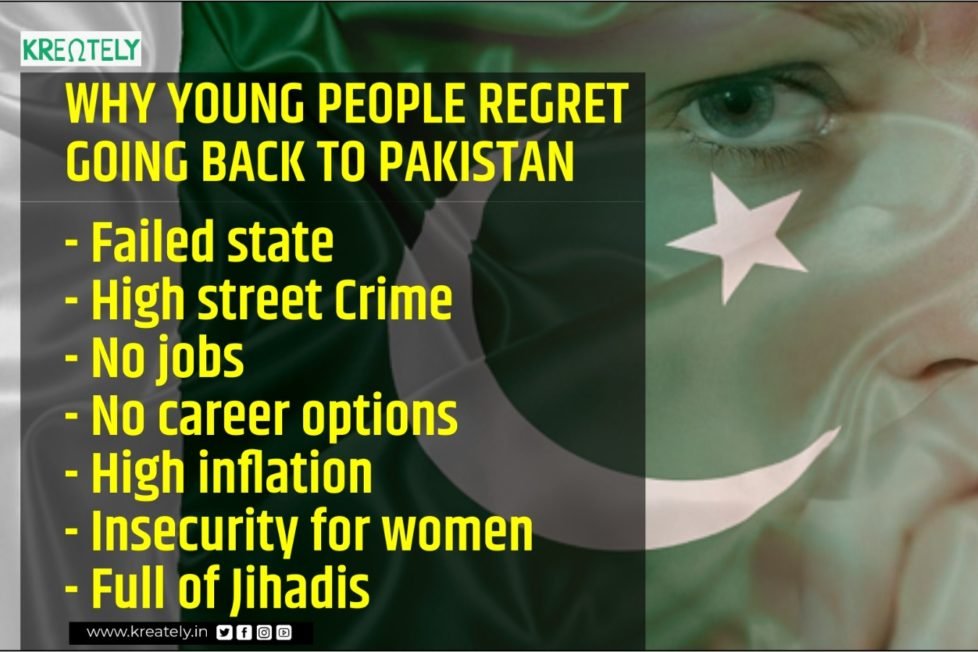


In 2014, Imran Khan made the final attempt to take charge of Pakistan. His dharna inside the container, sponsored and engineered by the Pakistan Army and its agencies went full blast in 2014. He made a vigil lasting over 126 days during which, he kept asking overseas Pakistanis and students to come back to Pakistan, as he was planning to make a new prosperous ‘Naya Pakistan’. Thousands decided to come back as they were all sold to the narrative. The tradition continued over the next couple of years, and many gave up their robust careers in the west, during the course. Recently, more and more people have started to vent their regrets on social media, cursing the day they came back, as they see no future for themselves in Pakistan.
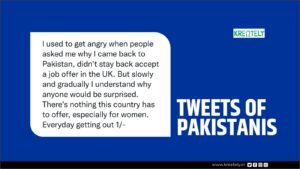
Once the euphoria of being able to ‘serve the country’ is checked, the next steps are finding a suitable job which pays well, building a social circle of like minded people, and exploring where to live etc. Many Pakistanis were able to find jobs initially, which may not have matched what they could have got in the west. However, as they were sold a false narrative, soon this compromise began to pinch many expats. Adding to that, there was the very pertinent issue of personal security. 20 years ago the lack of street safety which was already a large issue for women, has now gone to the next level. It is strictly not advisable for women to step out of their houses alone after dark in big and small cities alike. Those who work and do not have their own cars know better than to try and use public transport or Uber.
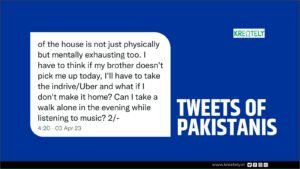
Women must ensure that they are dressed traditionally with the Dupatta covering their body even if they have to go outside during the day. Women and men both are unsafe walking on the streets because of fear of mugging etc. However, in a country where women are considered faith-ordained second class citizens, the current borderline anarchic situation has made the situation even worse for them. The parks in Islamabad become no go areas for women after dusk, so do the markets in Lahore.
 .
. 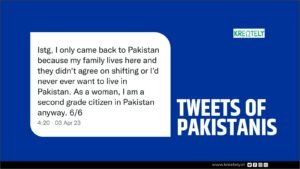
Another challenge is mode of transport. Women are not supposed to sit on motorbikes with a leg on either side, nor are they supposed to ride bicycles. In India, it is common to see ladies going to work as housemaids, to offices, or merely as a way to stay fit. But in Pakistan, only the elite or wannabe elite women can use a bicycle, and that too, never on their own. It has to be done in groups otherwise they will be heckled to death. The other transport options remaining for women of working class or middle class are going on foot or taking the bus. Cab services like Uber are too expensive and often unsafe for single women to use. Imagine the life of a woman who has spent at least some years in a western country, where there are no restrictions on modes of travel, on what they can wear, on simple choices they can make. Now imagine the same middle class woman in Lahore or Islamabad, where they have to think twice before stepping out of the house and plan their day around who they may have as escort to bring them home in the evening.
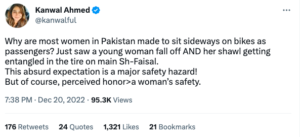
To the citizens of a free country like India, some of these issues may appear too inconsequential and minute, but imagine the situation of those who left riveting careers and robust lifestyles abroad to come and serve their country, only to realise they were sold a lie.
DISCLAIMER: The author is solely responsible for the views expressed in this article. The author carries the responsibility for citing and/or licensing of images utilized within the text.
